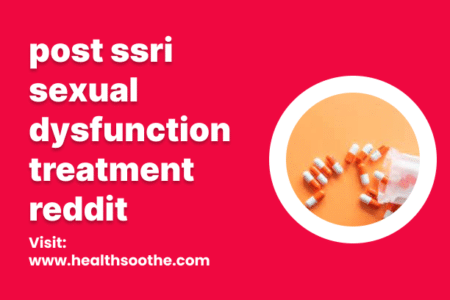“Klonopin” is the brand name for a medication called clonazepam. Clonazepam is a prescription drug that belongs to a class of medications known as benzodiazepines. Benzodiazepines are commonly used to treat various conditions, primarily anxiety disorders, panic disorders, and certain types of seizures.
How to use Klonopin oral
Before initiating clonazepam usage and with each refill, carefully read the Medication Guide provided by your pharmacist. If you have inquiries, consult your doctor or pharmacist.
Consume this medication orally according to your doctor’s instructions, usually 2 or 3 times daily.
The dosage is determined by your medical condition, age, and treatment response. For children, the dose is weight-dependent. In older adults, commencing with a lower dose is common to minimize potential side effects. Do not amplify the dose, frequency, or duration beyond the prescribed directives.
Maintain a consistent schedule for taking this medication to maximize its benefits. To facilitate recollection, ingest it at consistent intervals daily.
Do not cease this medication without consulting your doctor. Abrupt discontinuation can exacerbate certain conditions. Gradual dose reduction may be necessary.
With extended use, this medication might lose some effectiveness. If this occurs, discuss it with your doctor.
While beneficial for many, this medication may carry a risk of addiction. This risk could be heightened if you have a history of substance use disorder. To minimize addiction risk, adhere to prescribed guidelines. Seek additional information from your doctor or pharmacist.
The initial usage of clonazepam might lead to an exacerbation of seizures in individuals with various seizure disorders. Promptly inform your doctor if this occurs. Adjustments to other medication doses might be required to manage seizures effectively.
Update your doctor on the status of your condition or if it worsens over time.
Side Effects
You might experience drowsiness, dizziness, fatigue, diminished coordination, or increased saliva production. In the event that these effects persist or worsen, promptly inform your doctor or pharmacist.
Keep in mind that this medication has been prescribed because your doctor has determined that the benefits outweigh the potential side effects. Many individuals who use this medication do not encounter severe side effects.
A small percentage of individuals taking anticonvulsants for various conditions (like seizures, bipolar disorder, or pain) might encounter mood issues, including depression, suicidal thoughts/attempts, or other mental/mood-related problems. Should you, your family, or a caregiver notice abrupt/unusual changes in your mood, thoughts, or behaviour such as confusion, memory troubles, signs of depression, or thoughts of self-harm notify your doctor without delay.
A serious allergic reaction to this drug is rare. However, seek immediate medical assistance if you experience any signs of a severe allergic reaction, which may include a rash, itching/swelling (particularly of the face/tongue/throat), intense dizziness, or difficulty breathing.
Precautions
Before beginning clonazepam, inform your doctor or pharmacist if you are allergic to it, other benzodiazepines (like diazepam or lorazepam), or if you have any other allergies. Inactive components in this product could lead to allergic reactions or other issues. For further details, consult your pharmacist.
Prior to using this medication, share your medical history with your doctor or pharmacist, particularly if you have certain eye conditions (narrow-angle glaucoma), specific blood disorders (porphyria), liver disease, kidney disease, lung/breathing problems, mental/mood disorders (such as depression or suicidal thoughts), or a personal/family history of substance use disorder (including drug/alcohol misuse or addiction).
This medication might cause dizziness or drowsiness. Alcohol or marijuana (cannabis) could exacerbate these effects. Refrain from operating machinery, driving, or engaging in tasks requiring alertness until you can do so safely. Avoid alcohol consumption. If you use marijuana (cannabis), discuss this with your doctor.
Before undergoing surgery, inform your doctor or dentist about all the products you use, including prescription drugs, nonprescription drugs, and herbal products.
For children, the potential long-term impacts on physical and mental/behavioural development are uncertain and may only manifest after several years. Speak with your doctor about the risks and advantages of clonazepam treatment for children.
Older adults might be more sensitive to the effects of this medication, especially when experiencing drowsiness and confusion. Such side effects can heighten the risk of falling.
During pregnancy, use this medication only when clearly necessary, as it could harm an unborn baby. Newborns of mothers who use this medication late in pregnancy could exhibit symptoms such as shallow/slow breathing, constant crying, shaking, or feeding difficulties.
However, since untreated seizures pose a significant threat to both a pregnant woman and her unborn child, do not discontinue this medication unless instructed by your doctor. If you are planning pregnancy, become pregnant, or suspect pregnancy, promptly discuss the medication’s risks and benefits with your doctor.
This drug enters breast milk and could have unfavourable effects on a nursing infant. Consult your doctor before breastfeeding.
Interactions
Interactions between drugs can alter the functioning of your medications or elevate the potential for severe side effects. This document does not encompass all feasible drug interactions.
Maintain a comprehensive record of all products you utilize, including prescription and nonprescription medications, as well as herbal products, and disclose this information to your doctor and pharmacist. Never initiate, cease, or modify the dosage of any medications without receiving your doctor’s authorization.
Certain products that could interact with this medication encompass orlistat and sodium oxybate.
The likelihood of experiencing serious side effects (like slow or shallow breathing, intense drowsiness, or dizziness) may escalate if this medication is combined with other substances that can also induce drowsiness or respiratory difficulties.
Inform your doctor or pharmacist if you are consuming other products such as opioid pain or cough alleviators (e.g., codeine, hydrocodone), alcohol, marijuana (cannabis), medications for sleep or anxiety (e.g., alprazolam, lorazepam, zolpidem), muscle relaxants (e.g., carisoprodol, cyclobenzaprine), or antihistamines (e.g., cetirizine, diphenhydramine).
Inspect the labels of all your medications, including allergy or cough-and-cold preparations, since they might incorporate constituents inducing drowsiness. Seek guidance from your pharmacist on using such products safely.
Read Also: Suprep | Uses, Side Effects, and More
Overdose
In the event of an overdose with severe symptoms like loss of consciousness or breathing difficulties, dial 911. Otherwise, promptly reach out to a poison control centre. Residents of the US can contact their local poison control centre at 1-800-222-1222, while Canadian residents should reach out to their provincial poison control centre. Overdose indicators might comprise pronounced drowsiness, confusion, diminished reflexes, and loss of consciousness.
Important Notes:
Abstain from sharing this medication with others, as doing so is against the law.
While on this medication, medical tests (including liver function and complete blood count) might be required. Keep all medical appointments and adhere to recommended lab tests. For more details, consult your doctor.
Missed Dose:
In case of a missed dose, take it as soon as you recall. If the next dose is approaching, skip the missed dose and proceed with your regular dosing schedule. Refrain from doubling the dose to compensate.
Storage:
Store at room temperature, away from light and moisture. Avoid storing it in the bathroom. Keep all medications out of reach of children and pets.
Do not flush medications down the toilet or pour them into drains unless specifically instructed. Properly dispose of the product when expires or is no longer needed. Consult your pharmacist or local waste disposal agency for guidance.
Conclusion
In conclusion, clonazepam is a medication prescribed to manage seizures, anxiety, and panic attacks. However, its usage comes with considerations and precautions to ensure safety and effectiveness. This medication may cause side effects, interact with other substances, and require careful monitoring.
It’s imperative to follow medical advice, adhere to prescribed dosages, and communicate openly with healthcare providers about any concerns or changes in health status. Proper storage, responsible medication management, and an understanding of potential risks and benefits are essential for a successful and safe experience with clonazepam.
If you have any questions or uncertainties, consulting a medical professional is crucial to make informed decisions about its use and to address any potential challenges that may arise.





